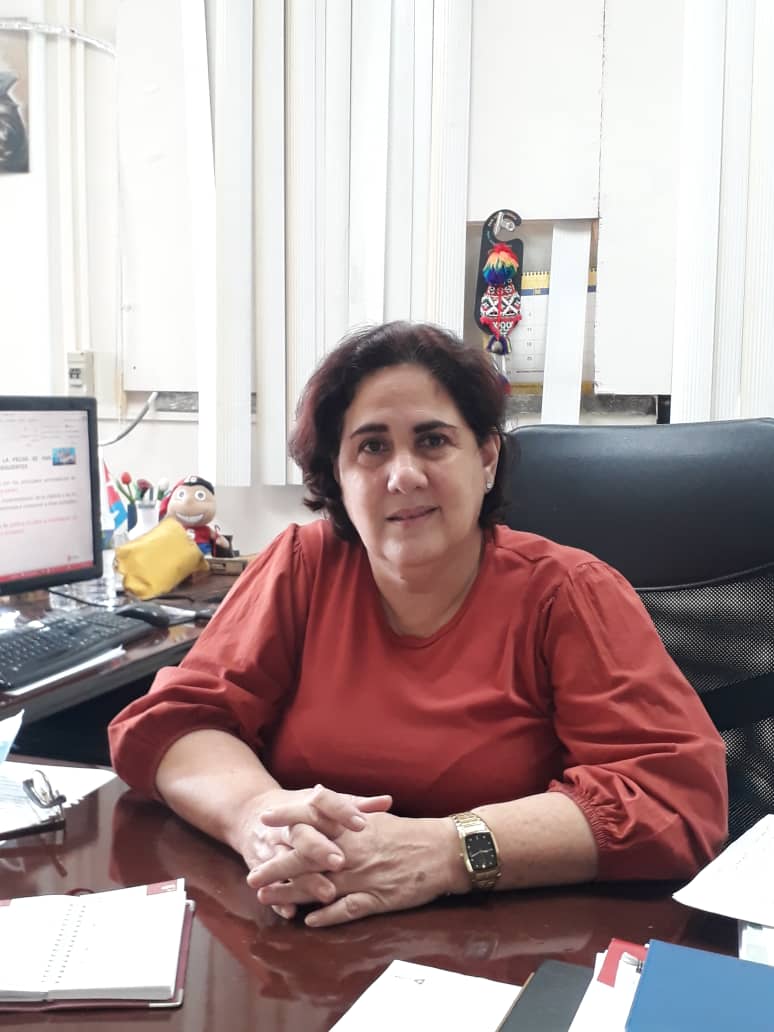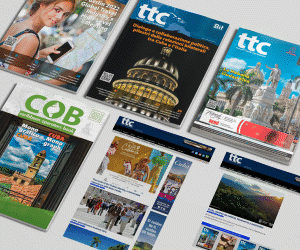By Marina Menéndez Quintero, analyst specializing in Latin America and the Caribbean
After the blow that the COVID-19 scourge has meant for the island’s foreign trade, Cuba is striving to boost and diversify exports. To this end, it is consolidating current commercial ties, certifying new productions and seeking to break into other markets, while new actors are breaking into its economic and commercial framework, which could enrich the variety of export products and, above all, promote territorial development: that is a fundamental purpose for a society like the Cuban one, which is seeking to be sustainable.
About these issues TTC spoke with Vivian Herrera Cid, general director of foreign trade of the Cuban Ministry of Foreign Trade and Foreign Investment.
What impact have the consequences of the pandemic had on Cuba?
The pandemic has affected all the economies of the world. Cuba is no exception.
The impact of the pandemic hit us hard because many import and export goods decreased their replenishment cycle, first of all due to the huge contraction experienced by international logistics. Ports and factories came to a standstill as a result of the confinement forced by the virus.
This decrease in operations was visible above all in Asia, in whose countries the first cases of the disease were reported and where we precisely have many commercial relationships.
Then came the rise in the cost of international freight, which has reached an unprecedented escalation. For example, a container of merchandise has even reached a four- to fivefold increase compared to the rate it had.
Cuba, with all the shortcomings it is suffering and has suffered, moreover, due to the tightening of the blockade and the 243 restrictive measures implemented against it by the Donald Trump administration, suffered the effects of the pandemic under great tension.
Our scientists saved us because they created vaccines that have immunized us. But we must also talk about those heroes who worked tirelessly in foreign trade to bring all the necessary supplies.
It was a very tense situation, with very few resources, because our financial resources obtained from exports come from the areas of health and tourism, essentially, and tourist activity was completely paralyzed.
With a significantly reduced export of services and, therefore, with fewer financial resources, it was necessary to face the purchase of lung ventilators, for example.
As a result of the tightening of the blockade, it was necessary to import from and sign contracts with very distant countries, although we do not forget the solidarity of many nations that sent us medical resources.
How did our foreign trade balance behave last year?
Exports of goods grew by 17 percent in value compared to December 2020, conditioned by the increase in sales prices of nickel and its manufactures, pharmaceutical products and tobacco.
The export of services decreased significantly compared to December 2020, conditioned by the reduction in tourist services due to the epidemiological situation. However, health services took on a greater role in exports.
By the time the pandemic arrived, Cuba’s purpose of strengthening all productive forces was already established, which has led to the emergence of new economic actors. Who are these actors and how much could they represent to revitalize the national economy?
Since August 2020, a group of four fundamental regulations, issued by the Ministries of Finance and Prices, Economy and Planning, the Central Bank of Cuba and the Ministry of Foreign Trade and Foreign Investment, were approved; they establish the work of the foreign trade enterprises to provide import and export services to forms of non-state management.
Our range of attention include micro, small and medium-sized enterprises (MSMEs), which constitute one of those forms of non-state management, as well as other non-state forms such as self-employed workers (private), cooperatives of all kinds, creators, independent farmers, among others.
All these actors have the possibility of selling their productions, whether services or goods, to authorized foreign trade entities, so that they carry out activities related to foreign trade for them.
These state enterprises are service providers; they go abroad to sign contracts and pay non-state forms of management for the products or services they agree on, in the case of exports, and they buy for them in the case of imports. Fifty-nine state entities are approved to carry out these services.
To date, there are 10,792 contracts established by said state enterprises with these forms of non-state management.
In the case of exports, 199 contracts have been signed. This is not a significant amount in relation to the total number of foreign trade contracts that exist, but we value this activity as positive, which contributes to the diversification of Cuba’s export products and, above all, to territorial development, something on which we must work purposely.
Regarding import contracts specifically, these include many inputs that our forms of non-state management need to replenish and maintain their businesses. The latter provide a service to the population. But that replenishment is also to produce for export. These amount to 10,484.
And there are 109 online sales contracts, which do not constitute export contracts because it is electronic commerce, where goods do not cross borders.
It is also important that significant alliances are being established with some state enterprises and some export production centers.
At the same time, producers and enterprises in the territories are undergoing training so that they can effectively undertake these processes, which are new for these actors.
In what areas are these activities mostly developed?
They are mostly located in the agricultural sector. Exporting is a complex activity, and to do so from this sector it is necessary to comply with requirements such as certification of the land, and with plant health regulations that protect production, so that exports comply with the food safety standards that are essential to allow their products access to other markets. Some of them are very demanding, such as those of the European Union and Canada.
At what stage are the alliances of enterprises and productive centers with non-state actors and their possibility of participating in foreign trade?
For example, the Ceballos Agro-industrial Enterprise, in Ciego de Ávila, is a productive export center dedicated mainly to harvested and processed fruits, and it is associated with an important group of non-state forms of management such as farmers and cooperatives from the province or nearby territories. These are contributing with their productions to sustain export markets and, at the same time, they are benefiting.
The creation and consolidation of the Exporting Productive Centers constitutes a focal point in the attention to the territories. In Cuba, 15 exporting productive centers have been identified, to date ten have been created; of them, three in December 2021.
So far, eight of the island’s provinces have at least one productive export center, whose alliances with the new actors we are encouraging, as well as giving them powers and authority for export.
Among them are the Victoria de Girón agribusiness, in Jagüey Grande, Matanzas; the Asdrúbal López coffee processing enterprise, from Guantánamo; the Agroforestal y Coco Baracoa enterprise, from the same province; the Tropical Contramaestre joint venture, in Santiago de Cuba; the Holmeca mechanical enterprise, from Holguín; the Sur del Jíbaro agro-industrial grain enterprise, in Sancti Spíritus; the Acopio enterprise, from Cienfuegos and the Costa Sur agroforestry enterprise.
On the other hand, seven provinces, including the special municipality of Isla de la Juventud, still do not have productive export centers.
The enterprises with the possibility of becoming a productive export center are the Jesús Montané Oropesa agribusiness, from Isla de la Juventud; the Enrique Troncoso agro-industrial enterprise, from Pinar del Río; Various Local Industries, from Mayabeque; Valle del Yabú, in the province of Villa Clara; Cítricos Sola, from Camagüey; the Integral Agricultural Enterprise of Las Tunas; and the Fernando Echenique Grain Enterprise, from Granma.
What other steps are being taken to expand the range of exports?
We are also working on the certification of our exportable products in new markets, as well as on expanding the certification of new products in markets where we were already present, as is the case of China. Our lobster was certified there, but we can now sell them 14 fish products.
We are constantly working to diversify our productions and access, in general, to new markets.
A review is also being carried out of the partial scope agreements and the economic complementation agreements established with countries in the region to strengthen our bilateral relations.
And to facilitate links and the establishment of agreements, we are building a single foreign trade window whose platform is already on the web https://vuceregulaciones.mincex.gob.cu/
Today we have the consultative platform in operation where all the procedures and regulations that govern Cuba’s foreign trade will appear, so that any potential partner can consult that page, which many have already accessed.
All those procedures that today are done on paper and in person can be carried out through this electronic window, which will also allow its users to know at what point their procedures are.
This is an important effort that we are carrying out together with UNCTAD through a donation of financial resources from the European Union, and that will not only facilitate trade, but also make its operations transparent, which constitutes one of the international standards required by international trade.

MORE NEWS











